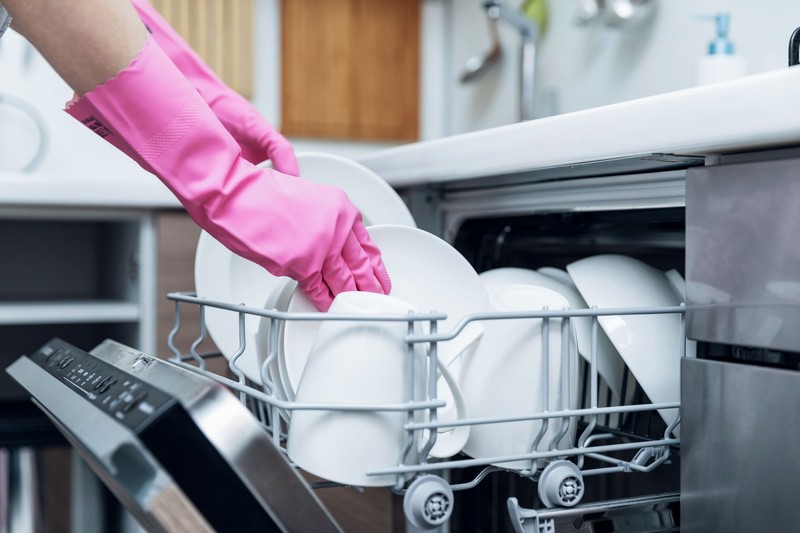Your dishwasher is probably one of the most utilised appliances in your home. This makes sense, considering that a dishwasher is a convenient appliance that may significantly cut down on the time spent hand-washing each dish.
Dishwasher cleaning and maintenance is often overlooked because of the common misconception that dishwashers clean themselves. This is truer than ever before when it comes to tidying up. However, the frequency with which it is used necessitates regular maintenance of even the most basic nature. Problems with a neglected dishwasher might become costly over time. If you act immediately and use the professional maintenance tips supplied by Mattioni, you can be certain that your most used equipment is functioning at its highest capacity.
Dishwasher Filters Should Be Cleaned On A Regular Basis
Debris buildup on the filter of your dishwasher might lead to foul smells if you don’t clean it frequently. Roughly once a month, you should clean the dirt out of your dishwasher’s filter. You may learn what kind of filter your dishwasher uses by consulting the manual that came with it. If your dishwasher is a manual type, you should remove the filter, clean it well, and then reinstall it for best operation.
The filter is presumably located on the ground of the unit, under the bottom spray arm. Some versions have a bottom flat filter and an upper cylindrical filter in their filtration mechanism. Both the flat and the circular filters need to be removed and washed by hand in soapy, warm water.
The Accumulation May Be Reduced By Using Vinegar.
White vinegar is well-known as a fantastic do-it-yourself cleaning agent for use all around the house. Vinegar may be used to clean the inside of your dishwasher, getting rid of stuck-on food and detergent buildup. To accomplish this, fill a dishwasher-safe container with one cup of vinegar, place it in the centre of the top or bottom rack, and run the dishwasher on the hot water cycle. Vinegar disinfects the dishwasher and aids in the breakdown of any built-up residue.
Take Care To Load The Dishes Properly.
Despite appearances, the way you load your dishwasher has a significant impact on its efficiency. Some proper ways to load a dishwasher are outlined below:
Check your washing machine’s manual to see which cycle is recommended for cleaning your specific items. Dishes and similar fragile items go in the lighter cycles, while bulkier cookware belongs in the heavier ones.
Take a minute to empty the grease and muck off of your plates and dishes if there is a lot of grease on them to prevent blocking the drain.
Do not overload the dishwasher or it will not clean the dishes. This includes both plates and pots and pans. Pack it with considerable thoughtfulness, using the different sections for their intended purposes.
Prepare The Dishwasher For Use By Cleaning The Gasket
If you don’t have a seal or gasket on your dishwasher, water will leak out and flood your kitchen. Mould and foul scents may be caused by residue building up on the gasket or seal of your dishwasher. Once a month, use a solution of three cups of water and half a cup of vinegar to wipe off the seal.
Conclusion
Spinning or spray arms that spray hot water on the dishes may make washing them much easier. However, they have holes in them that may become clogged and need frequent cleaning. To do this, you might use a toothbrush to brush out any debris or leftover food that may have been trapped within.











